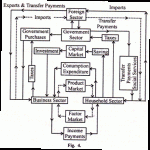
Bookkeepers must commit to continual learning to keep pace with changes in accounting standards and technology. They can fulfill their Continuing Professional Education (CPE) requirements by participating in workshops, webinars, and industry conferences. In retail or other non-office environments, bookkeepers may work in a back-office or stockroom area, away from customers and other employees. They may be responsible for managing inventory, tracking sales, and handling cash and credit card transactions. If your business has multiple international transactions, then your bookkeeper needs to be able to translate all foreign currency items into the business’s functional currency. They should record the rate of exchange on the date the wave live wallpaper transaction occurred and then record the gains and losses of the translation between currencies.
Keep Records Updated
This includes business expenses, invoices, donations, funding, sales, salaries, and more. This is important since it can demonstrate how much working capital you have to keep the business running. As liabilities are bought on credit, your bookkeeper can manage due dates for invoice payments, including payment terms. Making on-time payments can have a positive impact on your company’s credit score, which can have an effect on financing terms. Responsibilities for bookkeepers can vary widely from business to business, though there are a number of very common bookkeeping responsibilities.
What Does a Bookkeeper Actually Do: Essential Tasks Explained
- Learn how QuickBooks Live Expert Assisted can help you streamline your bookkeeping and free up time spent on finances.
- It is not uncommon for seasoned bookkeepers to leverage their foundation in bookkeeping as a stepping stone into more advanced accounting positions.
- In today’s digital age, bookkeepers heavily rely on accounting software to facilitate their day-to-day tasks.
- They ensure that daily financial transactions, including purchases, sales, receipts, and payments, are meticulously recorded and organized.
- Bookkeepers must maintain a petty cash box and ensure that funds are used in accordance with the company’s policies.
Bookkeeping is a vital profession involved in maintaining accurate financial records for individuals, businesses, and organizations. The following subsections focus on continuous learning, certification, and career pathways for bookkeepers. Bookkeepers are tasked with ensuring that all financial records comply with established accounting standards and procedures. They meticulously record transactions to maintain a clear audit trail and prepare crucial reports such as the trial balance, which forms the basis for financial statement preparation. Attention to detail is vital when performing account reconciliation to confirm that ledger entries reflect the corresponding bank statements accurately. Bookkeeping and accounting are both related to the financial management of a business, but they have some key differences.
An accountant may interpret the financial records that a bookkeeper compiles, in order to assess a company’s financial health. Becoming an accountant usually requires more training and education than bookkeeping and can be a good next step in your financial career. Bookkeepers must possess technical skills essential for maintaining accurate financial records and adhering to regulatory standards. They should be proficient with various accounting tools to fulfill their responsibilities efficiently. Bookkeepers are responsible for recording and maintaining financial transactions and providing updated information about a business.
Maintaining Accuracy and Detail in Record-Keeping
Professional development for bookkeepers is fundamental in staying current with the latest accounting practices and maintaining accuracy in financial reporting. It encompasses a range of activities from gaining certifications to advancing within the field through enhanced accounting knowledge and experience. These controls reduce the risk of errors and potential fraud within an organization. They ensure that every financial transaction is recorded accurately and that the data reflects the company’s actual financial position. Having a bookkeeper who can manage your transactions, and keep your financials updated and accurate. Double-entry bookkeeping records all transactions twice, usually a debit and a credit entry.
Bookkeepers how to get a job at deloitte ey kpmg and pwc are integral to ensuring that businesses keep their finances organized. If you’re interested in a career as a bookkeeper, consider taking a cost-effective, flexible course through Coursera. At the end of the course, you’ll receive a professional certificate, which you can put on your resume to demonstrate your skills and accomplishments to potential employers.
They ensure that daily financial transactions, including purchases, sales, receipts, and payments, are meticulously recorded and organized. This foundation of accurate and organized financial data is critical for the accountant to analyze and interpret. Bookkeepers and accountants are both essential components of a successful financial system within a business. They work together to ensure that financial transactions are recorded and reported accurately, helping to maintain the company’s financial health. With the help of modern technology and software, bookkeepers can efficiently handle large volumes of transactions in a relatively short period of time. Their work plays an essential role in the overall operation of a business, as they help management make informed financial decisions based on accurate financial data.
The problem for many small businesses is that taking care of the financials is time-consuming. Too many business owners wait until tax time or when they need updated financials for financing to address their bookkeeping. Modern accounting software is the repository of all financial transactions for your company and can generate requisite reports in real-time.

While primarily the domain accounting worksheet of accountants, a bookkeeper also contributes to financial analysis by maintaining the records required to identify and explain variances in financial data. Bookkeepers ensure all financial data is systematically recorded and categorized, which is crucial for identifying trends, unexpected discrepancies, and areas of financial concern. Growing a business means understanding the financial health of your company, and then making decisions that support expansion.
Get live expertise
Remember that you want to tailor the role’s responsibilities in the job description so that it’s not just aligned with the position but with your company. By integrating these best practices, bookkeepers play a pivotal role in the financial health and operational efficiency of a business. In the domain of bookkeeping, payroll and benefits administration are critical functions that require meticulous attention to detail.
